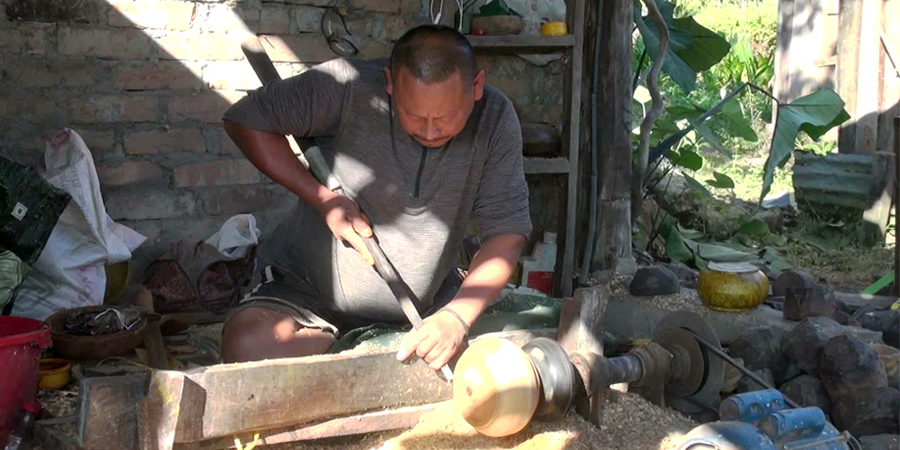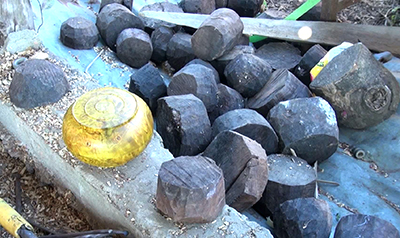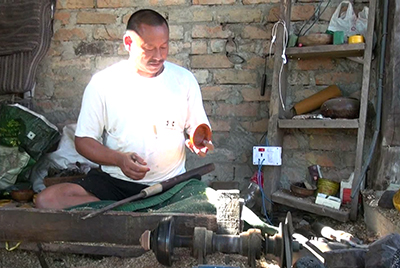
As far as history can tell, Trashi Yangtse is the only place famous for Shagzo or woodturning. But here on, Sarpang could be an addition. Thanks to 48-year-old Ugyen, a native of Trashi Yangtse who settled in Shariphu of Singye Gewog – Shagzo is gaining popularity there. Ugyen reached Sarpang in a resettlement programme in 2008 and along took with him the art of woodturning down south. Dear to his heart and a source of his livelihood, it is also attracting the interest of youth who want to learn the art.
He didn’t go to school and grew up watching his elders do woodturning. He even tried his hands on it – and it worked. The hands that didn’t even know how to write an alphabet are the same hands that make varieties of exquisite functional and decorative products such as wood bowls and cups.
From the outside, Ugyen’s work station – beside his home appears no better than a temporary shelter, but inside, it is heaven for the woodman. When BBS visited his site at Shariphu under Singye Gewog, the master artisan was giving his finishing touch to the first wooden bowl of the day.
He began the business in 2010 and ever since he has never looked back.
According to Ugyen, he reached Sarpang for resettlement in 2008. However, because he didn’t have a proper place to stay, he could not start the business.
“I could not even construct a house for about two years and stayed in a temporary shed. After I began the business after two years, it has immensely benefited me,” he said.
 All he got is a simple machine and a lot of wood. A business that requires almost no investment, this not only feeds his family but also keeps the art alive.
All he got is a simple machine and a lot of wood. A business that requires almost no investment, this not only feeds his family but also keeps the art alive.
Like any Shagzopa, he uses Burls found in trees such as alder, oak, eaglewood to make wooden articles.
In a day, he can make at least seven bowls and a few cups. And there is no dearth of market. He mostly sells his products in Sarpang, Thimphu, Paro, Punakha, and Wangdue. The price for his bowl ranges from Nu 4,500 to Nu 5,000 while he sells the cups at Nu 300 to Nu 800. In a month he earns at least Nu 60,000.
Given its huge income potential, many youth there are interested to learn the art. Ugyen plans to train as many as he can.
 “There are many school dropouts interested to learn the art. I would be very proud of myself if I can teach them about woodturning. So, I am hopeful that I would be able to impart this skill to them soon,” Ugyen said.
“There are many school dropouts interested to learn the art. I would be very proud of myself if I can teach them about woodturning. So, I am hopeful that I would be able to impart this skill to them soon,” Ugyen said.
Ugyen has also taught his wife and two children. They are ready to take over the family business one day.
A well-known sector of folk crafts in Bhutan, woodturning is one of the 13 traditional arts and crafts in the country. Some wooden cups are considered very special, particularly the one made out of Dza, abnormal outgrowths wooden knots. It is believed to even purify poison.
Widely used before the usage of steel and brass started, it is even vibrant in the country today and people like Ugyen further promote the art.
Meanwhile, apart from woodturning works, Ugyen also does agricultural works.
Karma Wangdi, Sarpang
Edited by Chayku





